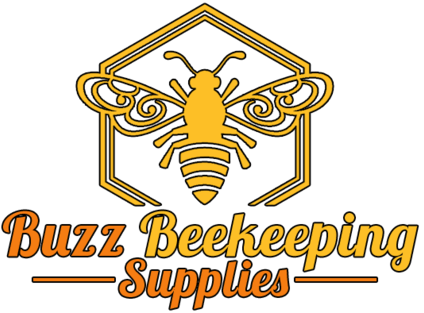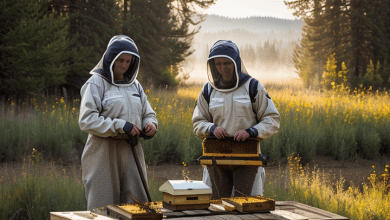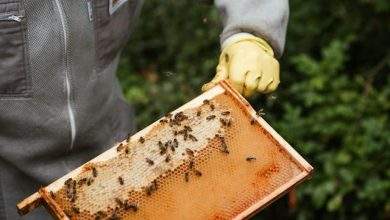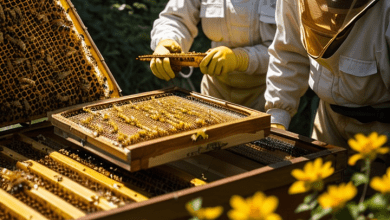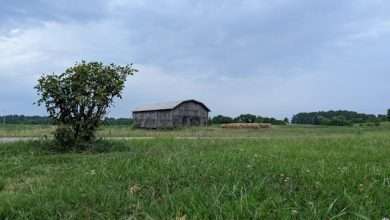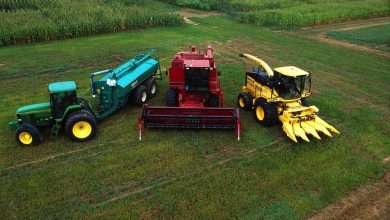Bee Supplies Nebraska
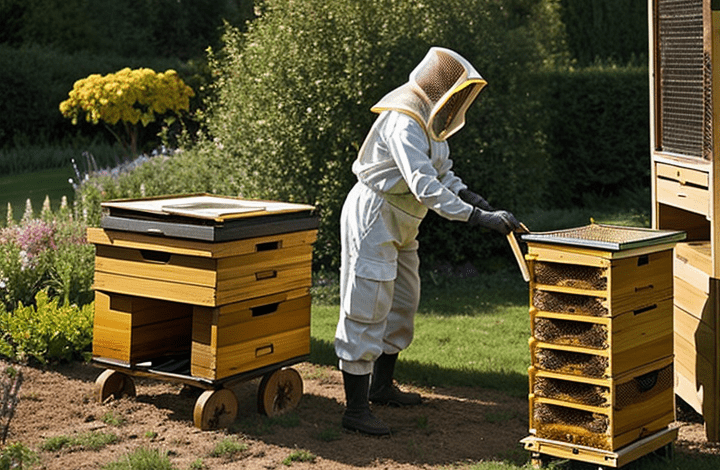
Beekeeping has been gaining popularity in Nebraska as more people become interested in sustainable and eco-friendly practices. Whether you’re a novice or an experienced beekeeper, having the right beekeeping supplies is essential for the well-being of your bees and the success of your beekeeping venture.
In this article, we’ll take a closer look at the importance of quality beekeeping supplies, the types of equipment needed, how to choose the right supplies, tips for maintaining them, and where to find beekeeping supplies in Nebraska.
No matter where you are looking for beekeeping supplies in Nebraska, we’ve got you covered.
Beekeeping in Nebraska
Beekeeping has been a vital part of Nebraska’s agricultural landscape for centuries, dating back to the pioneer days when settlers first brought honeybees to the area.
Today, the Cornhusker State boasts a thriving beekeeping industry that plays a crucial role in the state’s economy, environment, and community. From producing sweet, golden honey to providing essential pollination for crops, bees are busy little creatures that contribute in numerous ways to the well-being of Nebraska.
Nebraska ranks 18th in the United States in honey production, with an estimated 1,496,000 pounds of honey produced.
Essential Beekeeping Equipment in Nebraska: A Comprehensive Guide
Embarking on a journey in beekeeping requires a thorough understanding of the essential equipment needed to effectively manage a beehive. In Nebraska, where beekeeping is a popular practice, having the right bee supplies is crucial for successful hive management.
Understanding Beehive Components
When it comes to beekeeping, having the right hive components is essential for creating a conducive environment for honeybees to thrive. Let’s explore the essential beekeeping equipment needed for successful beekeeping in Nebraska.
- Hive Boxes: The fundamental building blocks of any beehive are the hive boxes. Langstroth hive boxes are commonly used, providing beekeepers with the ability to easily inspect and manipulate frames which accommodate various stages of bee colony growth.
- Frames: Within each hive box, frames play a crucial role in providing structural support for honeycombs, brood rearing, and honey storage. Beekeepers predominantly employ wooden frames with a plastic foundation, striking a balance between strength and ease of use.
- Bottom Boards: Acting as the base of the beehive, bottom boards provide hive stability and ventilation. Choosing bottom boards that can withstand temperature fluctuations and provide adequate ventilation is essential in Nebraska’s harsh climate.
- Inner Covers and Outer Covers: Completing the structural integrity of the hive, inner covers and outer covers provide insulation and protection to the honeybees, safeguarding the hive from harsh weather conditions.
Protective Clothing:
Beekeepers in Nebraska must prioritize their safety during hive inspections and honey harvesting by investing in essential protective clothing. From bee suits and gloves to beekeeping boots and veils, it is crucial to have the right gear to ensure a successful and secure beekeeping journey.
- Bee Suit: A bee suit is a vital necessity for beekeepers as it provides essential protection during interactions with honey bees. There are two primary options available – canvas beekeeping suits and ventilated bee suits. Canvas suits offer exceptional durability and sting resistance, providing maximum coverage against bee stings. On the other hand, ventilated bee suits are constructed with a breathable mesh fabric, allowing beekeepers to work comfortably even in hot weather conditions.
- Gloves: Choosing the right pair of beekeeping gloves is crucial for safeguarding hands from stings while also offering dexterity. Beekeepers can choose between goatskin bee gloves and cowhide bee gloves. Goatskin gloves are known for their exceptional tactile sensitivity, enabling beekeepers to handle delicate tasks with ease. Alternatively, cowhide gloves provide robust protection against stings due to their thick leather construction.
- Beekeeping Boots: Protecting the feet is equally important when tending to honey bee colonies. Beekeeping boots, specifically designed to keep bees from accessing the feet, are a vital addition to beekeeping supplies. These boots typically feature a sturdy construction and protective padding to prevent bee stings. Comfort and ankle support are essential considerations when selecting beekeeping boots.
- Beekeeping Veil: A reliable beekeeping veil is essential for safeguarding the face and neck from bee stings. These veils typically consist of a fine mesh that allows for excellent visibility while ensuring bees cannot reach the skin. Some veils come attached to beekeeping suits or jackets, while others are detachable, offering flexibility to suit individual preferences.
It is worth noting that many times, a combo pack of a bee suit and bee gloves can be purchased at a discounted price.
When purchasing a beekeeping suit or jacket, it is important to ensure that a veil is included.
In conclusion, investing in high-quality protective clothing is indispensable for beekeepers in Nebraska as it ensures safety and comfort during hive inspections and honey harvesting. By carefully considering the options available for bee suits, gloves, boots, and veils, beekeepers can make informed choices to support their beekeeping endeavors.
Essential Beekeeping Tools for Beekeepers in Nebraska:
Beekeeping is a fascinating and rewarding endeavor, but it requires the right equipment to effectively manage and care for honeybee colonies. As a beekeeper in Nebraska, it’s crucial to have a well-stocked arsenal of beekeeping tools to ensure the smooth operation of your hives.
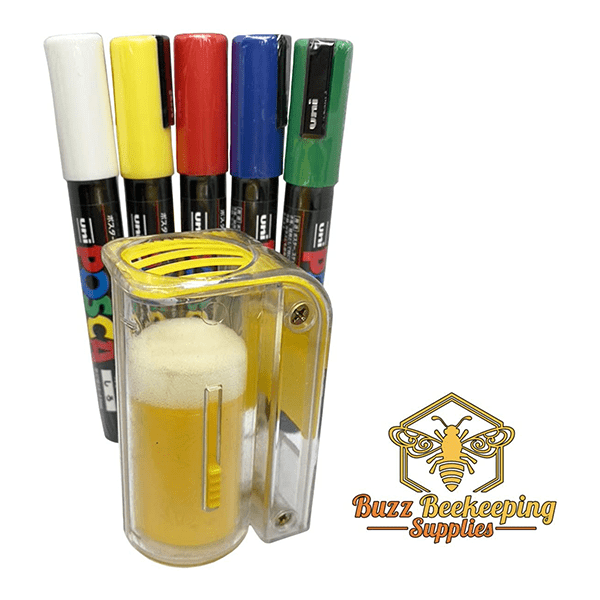
- Hive Smoker: Calming Honeybees During Inspections – The smoker is a vital tool in every beekeeper’s toolkit. It is used to calm honeybees during hive inspections, making it easier and safer for the beekeeper to work with the bees. By producing cool smoke that masks the alarm pheromones released by guard bees, the smoker helps pacify the colony and reduce the risk of stings. Additionally, the smoke triggers a feeding response in the bees, causing them to fill up on honey and become less inclined to sting. Therefore, it is essential for beekeepers to always carry a smoker and extra fuel to effectively manage their hives.
- Hive Tool: A Versatile Instrument for Hive Inspections – Another indispensable tool for beekeepers is the hive tool. This versatile instrument is used to separate and pry apart hive components during inspections. It assists in loosening frames that are stuck together with propolis, a sticky resin-like substance produced by bees. With a flat blade on one end and a curved hook on the other, the hive tool is perfect for lifting frames, scraping off excess propolis, and removing burr comb. Its sturdy construction ensures that beekeepers can efficiently dismantle and reassemble their hives without causing any harm to the bees or the equipment.
- Bee Brush: Caring for Honeybees During Inspections – While the smoker and hive tool serve functional purposes, the bee brush is primarily focused on the care and well-being of the bees. This soft-bristled brush allows beekeepers to gently move bees away from specific areas during inspections without causing harm or stress. It helps keep the bees calm and prevents them from getting unnecessarily crushed or injured. Whether beekeepers need to gently remove bees from frames, boxes, or other areas where they may be clustered, a bee brush is an essential tool to maintain harmony between beekeepers and their precious honeybees.
- Queen Marking Tools: Identifying and Tracking the Queen Bee – Queen marking tools are crucial for identifying and tracking the queen bee within a colony. These tools typically consist of a small, colored plastic or metal marker that can be carefully applied to the queen’s thorax. This marking helps beekeepers easily locate and follow the queen during hive inspections, reducing the risk of accidentally harming or misplacing her. The color code system established by beekeeping associations provides vital information about the age and year of the queen, allowing beekeepers to effectively monitor their colonies’ health and longevity.
Having the right beekeeping tools is essential for every beekeeper in Nebraska to thrive in the world of beekeeping. From the smoker to hive tools and queen marking tools, these essential equipment items play a crucial role in ensuring the well-being of honeybee colonies and the safety of beekeepers during hive inspections.
Hive Feeders:
Beekeepers play a crucial role in maintaining the health and thriving nature of bee colonies. One important aspect of beekeeping involves the provision of supplementary food to bees, especially during times of scarcity or when establishing new colonies. Hive feeders are essential tools that enable beekeepers to provide the necessary nourishment to their bees. These feeders hold various types of supplemental food, such as sugar syrup or pollen substitute, which are vital for the well-being and productivity of bee colonies.
Types of Hive Feeders
There are several types of hive feeders that beekeepers use to provide supplemental food to their bees, each with its own unique characteristics and benefits.
- Entrance Feeders: Entrance feeders are a commonly used type of hive feeder, favored for their ease of use and monitoring. These feeders are placed near the hive’s entrance, providing easy access for the bees to consume the supplemental food. The design of entrance feeders includes small holes or slots that prevent bees from drowning while accessing the food.
- Boardman Feeders: Boardman feeders are particularly popular among beginner beekeepers due to their simple design and practicality. Similar to entrance feeders, they are placed near the hive entrance and consist of a small plastic or glass jar with tiny holes or slits on the lid for bees to access the food easily. Boardman feeders can hold a relatively larger volume of food compared to entrance feeders.
- Top Feeders: Top feeders are larger in capacity and are placed directly on top of the hive, just beneath the outer cover. They are suitable for feeding larger colonies or during times when significant supplemental food is required. These feeders often come with floats or caps to allow bees to access the food without the risk of drowning, minimizing the disturbance to the hive.
- Division Board Feeders: Division board feeders are unique in that they are placed within the hive itself, dividing the brood chamber. Inserted between frames, these feeders allow bees to access the food from inside the hive, particularly beneficial during unfavorable external conditions. By providing food directly inside the hive, this feeder type ensures that the bees’ nutritional needs are met while minimizing their exposure to external elements.
Extraction Equipment:
Beekeepers understand the significance of extraction equipment in the process of harvesting honey from beehives. The right tools and apparatus are vital for effective and efficient honey extraction.
- Honey Extractors: One of the most crucial devices in honey extraction is the honey extractor. This equipment is specifically designed to extract honey from honeycomb frames without causing any damage. By utilizing centrifugal force, honey extractors spin the frames to separate the honey from the comb. There are different types of honey extractors available, including manual and electric models, each with its own set of advantages.
- Uncapping Tools: Before placing the frames in the honey extractor, it is necessary to uncap the cells to release the honey. Uncapping tools are specifically designed for this purpose. These tools come in different forms such as uncapping knives, electric uncapping knives, and uncapping forks. Beekeepers can choose the tool that best suits their preferred uncapping method and hive setup.
- Honey Filters: Once the honey has been extracted from the frames, it is essential to filter it to remove any impurities or debris, thus ensuring a high-quality end product. Honey filters, also known as honey strainers or sieves, are fine mesh screens that trap unwanted particles while allowing the honey to pass through. By using honey filters, beekeepers can ensure that their honey maintains its purity and clarity.
- Honey Buckets: After the honey has been extracted and filtered, proper storage is essential. Food-grade buckets are ideal for this purpose, as they are designed to meet strict food safety standards. These buckets are made from food-safe materials and have airtight lids, ensuring the honey remains fresh and free from contaminants. Beekeepers can store their harvested honey in these buckets until it is ready for packaging or consumption.
Food for Bees
Feeding your bees a balanced diet ensures their optimal health and productivity. While honey is their primary food source, supplemental feeding may be necessary in certain circumstances. Here are some common food options for your honeybees:
Sugar Syrup:
- Sugar syrup is the most common food source used for feeding bees.
- It can be easily made by dissolving granulated sugar in water.
- A common ratio is 1:1 (one part sugar to one part water) for spring and summer feeding, and 2:1 ratio for fall feeding.
- Sugar syrup should be prepared using only granulated white sugar; avoiding honey, brown sugar, or other sweeteners is crucial to preventing potential disease.
Pollen Substitute:
- Pollen substitute can be used to supplement the bees’ dietary needs, especially during times when natural pollen is scarce.
- Commercially available pollen substitute can be mixed with water to create a patty-like consistency for bees to consume.
- It should be noted that natural pollen from a diverse range of flowers is always preferred over substitutes.
Pest Control Products
Every beekeeper must also be mindful of potential pests and diseases that can threaten the health of their bees. Here are some essential pest control products to keep in your beekeeping toolkit:
- Varroa mites are one of the most significant threats to honeybee colonies.
- Chemical treatments, such as formic acid or oxalic acid, can be used to control Varroa mite infestations.
- Organic treatments, such as thermal treatments, thymol-based products or essential oils, are also available for those preferring natural options.
- Wax moths can infest and damage honeybee hives by eating through beeswax comb.
- Chemical treatments like paradichlorobenzene or freezing frames can effectively control wax moth populations.
- Regular hive inspection can help identify and prevent infestations promptly.
Tips for Maintaining Beekeeping Supplies
Proper maintenance is essential for ensuring the longevity and effectiveness of beekeeping supplies:
- Proper Storage and Maintenance: Storing beekeeping equipment in a dry and secure location helps to prevent damage and deterioration. Regular maintenance, such as cleaning and oiling, can also extend the lifespan of the supplies.
- Regular Cleaning and Inspection: Beekeeping supplies should be cleaned and inspected regularly to ensure that they are in good working condition and free from any potential contaminants.
- Upgrading and Replacing Worn-Out Equipment: Over time, beekeeping supplies may become worn out and in need of replacement. Upgrading to newer and more efficient equipment can benefit both the bees and the beekeeper.
- Staying Informed About New Technologies: The field of beekeeping is constantly evolving, and beekeepers should stay informed about new technologies and innovations that can improve their beekeeping practices.
- Resourcefulness and DIY Solutions: In some cases, beekeepers may need to get creative and come up with DIY solutions to address specific challenges or equipment needs.
State Association
The state association is the Nebraska Beekeepers Association.
Buying Bees in Nebraska
Where to buy bees and nucleus hives (nucs) in Nebraska?
One of the best places to purchase queen bees, packaged bees and nucs is your local bee club.
Engaging with a beekeeping club can greatly enhance your knowledge, skills, and overall experience as a beekeeper.
Here is a list of local bee clubs in Nebraska:
- Omaha Bee Club
- South Central Nebraska Beekeepers
- Western Nebraska Panhandle Beekeepers
Nebraska Beekeeping Laws
If you are considering starting a beekeeping venture in Nebraska, it is crucial to familiarize yourself with the state’s beekeeping laws. These laws ensure responsible and sustainable beekeeping practices, protecting both the beekeepers and the valuable pollinators under their care.
- Registration Requirements: To engage in beekeeping activities in Nebraska, it is necessary to comply with specific registration requirements. The Nebraska Department of Agriculture (NDA) mandates that all beekeepers must register their beehives. By registering, beekeepers assist in monitoring and controlling the spread of honeybee pests and diseases, safeguarding the health of local bee populations. Registration also facilitates communication between the NDA and beekeepers regarding any relevant updates or emergency situations.
- Apiary Location and Placement: Selecting an appropriate location for your apiary is vital to ensure the success and welfare of your bee colonies. Nebraska beekeeping laws recommend placing apiaries in areas that minimize potential conflicts with neighbors and other land uses. It is advisable to position hives at least 25 feet from property lines to mitigate disturbances and promote good neighborly relationships. Additionally, beekeepers should consider proximity to public spaces and take necessary precautions to prevent any hazardous situations.
- Hive Identification: Properly marking and identifying your beehives is crucial for regulatory purposes and effective bee management. Nebraska law dictates that each hive must display a visible identification sign. This sign must include the beekeeper’s name, address, and contact information, allowing authorities to trace beekeepers in cases of emergency or disease outbreaks. Maintaining accurate hive records and ensuring their accessibility is a responsible beekeeping practice that aids in disease control and surveillance.
- Disease Control Measures: Beekeepers in Nebraska are obligated to implement stringent disease control measures to minimize the spread of harmful pests and pathogens. Regular hive inspections, following recommended guidelines, are essential to identify and address potential disease outbreaks promptly. Moreover, it is crucial to familiarize oneself with the signs and symptoms of common honeybee diseases to ensure early detection and timely intervention.
- Pesticide Use and Awareness: Nebraska’s beekeeping laws emphasize the need to safeguard honeybees from the detrimental effects of pesticides. Beekeepers are encouraged to continually educate themselves about pesticide labels and the potential risks they pose to bee colonies. Maintaining open communication with neighboring farmers and pesticide applicators can help establish collaborative efforts to protect bees during pesticide application. Additionally, being aware of nearby crop treatments and adjusting hive management accordingly can minimize pesticide-related impacts.
- Special Considerations for Urban Beekeeping: As urban beekeeping gains popularity, Nebraska’s laws address the unique challenges faced by beekeepers in urban settings. It is crucial to adhere to local zoning regulations and ordinances related to urban beekeeping. Ensuring appropriate hive placements, addressing concerns of neighbors, and complying with any additional urban beekeeping guidelines can help foster harmonious relations and sustainable beekeeping practices in urban environments.
Conclusion
Quality beekeeping supplies are the backbone of a successful beekeeping operation in Nebraska. By investing in high-quality equipment, making informed choices, and properly maintaining supplies, beekeepers can ensure the well-being of their bees and the sustainability of their practices.
Whether you’re just starting or have years of experience, beekeeping supplies play a crucial role in the success of your beekeeping venture. Be sure to support local beekeeping communities and explore the resources available for further learning and support in Nebraska and beyond.
FAQ’s:

What beekeeping supplies do I need to get started?
- To start beekeeping, it’s essential to have a hive, frames, foundation, a smoker, beekeeping suit, gloves, hive tool, and a bee brush. Additional supplies may include feeders, pollen traps, a honey extractor, and mite control treatments, depending on your goals and beekeeping practices.
Where can I find reliable bee supplies in Nebraska?
- There are numerous places to find bee supplies in Nebraska. You can check out local beekeeping supply stores, agricultural supply centers, or even online platforms dedicated to beekeeping equipment. It’s important to choose reliable sources that offer high-quality products to ensure the success of your beekeeping venture.
Are there any local regulations or permits required for beekeeping in Nebraska?
- Beekeeping regulations vary by county and city in Nebraska. It’s crucial to contact local authorities or beekeeping associations to understand any applicable restrictions or permit requirements. These guidelines may cover hive placement, colony registration, and proper management practices to ensure the safety of both bees and the community.
How should I choose beekeeping protective clothing?
- When selecting beekeeping protective clothing, prioritize safety and comfort. Look for a full-body suit or jacket made of durable, lightweight fabric that provides ample protection against bee stings. Ensure that the clothing has a veil or hood that securely covers your face and neck, as those are particularly sensitive areas. Additionally, gloves, beekeeping boots, and a hat can further enhance your protection.
How can I protect my beehives from harsh Nebraska winters?
- Protecting beehives during winters in Nebraska is crucial for hive survival. Ensure that your hives have proper insulation by wrapping them in insulating materials or using hive wraps.
- Additionally, consider providing supplemental food sources, such as sugar syrup or fondant, to ensure the bees have enough food to sustain them throughout the winter months.
What are queen marking tools used for in beekeeping?
- Queen marking tools are crucial for identifying and tracking the queen bee within a colony, as well as providing vital information about the queen’s age and year.
When should I start beekeeping in Nebraska?
- Spring is the best time to start, but you can start researching and buying beekeeping supplies in the winter months. Then you will be prepared to purchase bees in early spring.
- Remember, beekeeping practices can vary based on specific locations and beekeeping goals. It is advisable to consult local beekeeping associations or experienced beekeepers in Nebraska for more precise guidance and to adapt to regional conditions.
What are queen marking tools used for in beekeeping?
- Queen marking tools are crucial for identifying and tracking the queen bee within a colony, as well as providing vital information about the queen’s age and year.
Why is it important to invest in quality beekeeping supplies?
- Quality beekeeping supplies are essential for the health and well-being of the bees, the success of the beekeeping venture, and the sustainability of beekeeping practices in Nebraska.
What should I look for in a beekeeping supplier?
- When you are looking for the best beekeeping supplies in Nebraska, it is important to keep a few things in mind. First of all, you want to make sure that the beekeeping supplies you purchase are of the highest quality. It is also important to make sure that you are buying supplies from a reputable beekeeping supplier.
